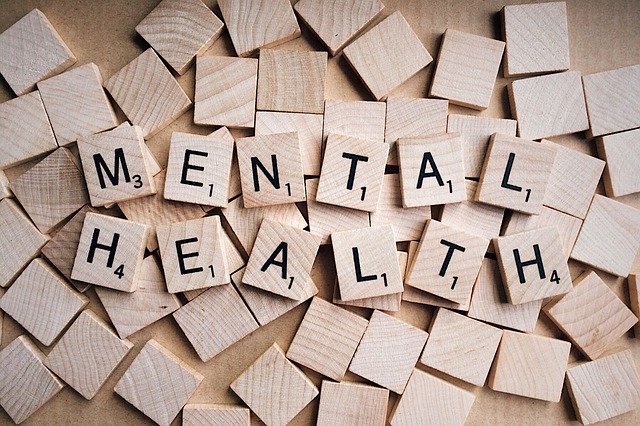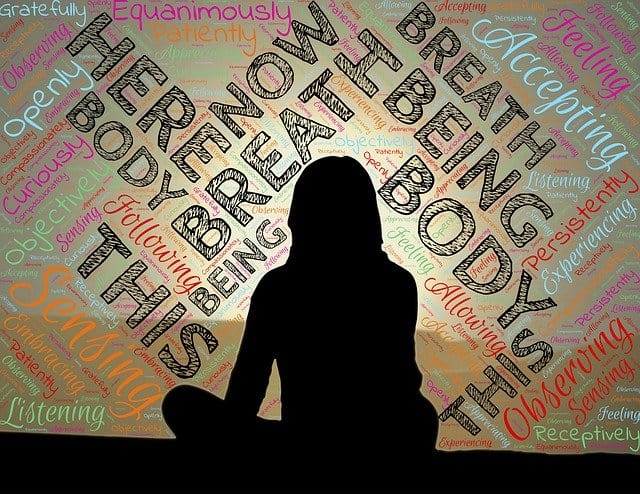In this article we want to gather together a collection of all the possible benefits regular practice of mindfulness meditation can bring. We have sought to include less obvious benefits as well as the more commonly mentioned ones.
When we begin to see all the possible benefits it can bring. we really do realize that mindfulness can literally change our lives.
In very simple terms, mindfulness meditation involves undertaking a series of very specific exercises which are training the mind to focus on one central object or anchor point, and return back to this anchor point whenever the mind wanders. In this way, a mental muscle is built which allows the person to stay more present and focused in the moment, and also calm and control their mind better.
There is a massive body of research now which shows that mindfulness meditation can offer a vast number of benefits in modern daily life, and be used to treat a great many problems and issues.
Some key benefits of practicing mindfulness include:
- Increased calmness and reduced stress.
- Improvements in physical health issues, sleep issues and chronic pain.
- Improvements in mental health problems like depression and anxiety.
- Improved self knowledge and self awareness for better life choices.
- Improvements in personal and work relationships.
- An ability to let go of bad things from the past.
Let’s look in more detail at these key reasons you should practice mindfulness meditation in much more detail, thoroughly fleshing out each point with explanation and examples.
Contents
- 1. Mindfulness Can Increase Calmness & Reduce Stress
- 2. Mindfulness Can Help With a Wide Range of Other Health Issues
- 3. Mindfulness Can Help With a Wide Range of Mental Health Issues
- 4. Mindfulness Can Increase Self Knowledge & Self Awareness
- 5. Mindfulness Can Improve the Quality of Your Personal & Work Relationships
- 6. Mindfulness Can Help You Let Go of the Past
- Getting Started With Mindfulness Meditation
- Author
1. Mindfulness Can Increase Calmness & Reduce Stress
Continued mindfulness practice will ingrain a far greater level of equanimity in the person. This point comes under the more general area of mental health, which we will cover in a section further below, but this point especially needs emphasizing as it’s such a crucial component in daily life.
In modern Western society, it is pretty much impossible to avoid stress to some degree. We have jobs, bills to pay, chores, relationships and sometimes children to take care of, and all of these things can sometimes combine to leave our minds fragmented, stressed and frantic.
Mindfulness practice can be a great way of reintroducing a background state of mental calmness and equanimity into our lives, and conversely reducing the effect that stress has on our lives. It is really an essential supplement to Western life for anyone who has a busy and somewhat stressful routine to their existence (ie. pretty much most of us in the West these days).
Developing a state of mindfulness can allow us to step back from all this hectic stress and busy-ness and see what’s really important again. Taking even 10 or 20 minutes out of your day to meditate can start to make a huge difference to your overall levels of calmness and stress tolerance.

Minfulness can be a great way of managing stress levels and developing greater equanimity
2. Mindfulness Can Help With a Wide Range of Other Health Issues
“I can make a pretty good case for this statement, that almost all illness is stress related….either it’s caused by stress, or it causes stress, or it’s aggravated by stress”
Dr Martin Rossman – see here
The knock on effect of this increased state of calmness and reduced stress which mindfulness can bring is a whole host of other health benefits. As the quote above states, stress is a key component in almost all illnesses when you step back and look at this from a wider perspective. Sorting stress out can sort out so many other things in your life by proxy.
Here are some other health benefits mindfulness can bring through increased calmness and reduced stress:
- Improved sleep.
- Lowered blood pressure
- Can stop certain stress related conditions flaring up, or reduce symptoms. eg eczema/psoriasis.
- Increased tolerance of any pain, both acute and chronic, which can accompany illnesses.
- Can address secondary issues which can arise from bodily health issues, like knock on depression and secondary stress.
How Mindfulness Can Change Your Life – Jon Kabat Zinn
3. Mindfulness Can Help With a Wide Range of Mental Health Issues
One of the most important benefits of mindfulness meditation is that is can serve to help with an enormous range of mental health issues, pretty much across the board, when practised correctly and consistently.
The relationship between meditation and mental health brilliantly explained in 4 minutes
This is an especially important issue for modern times because too many people are suffering from various mental conditions and going to their doctors, only to be given medication which a) attempts to treat on the biological level problems which originate on the psychological level; or b) treats symptoms and not causes, depending on how you look at it.
The reality is that mindfulness is a completely free, portable and holistic solution which can serve to improve (and in some cases eradicate) many mental health issues. Here are some of the more common examples of this.
Depression – Perhaps the most important condition that mindfulness can serve to help. Simply allowing distressing states like depression in with a non judgemental curiosity (instead of trying to resist it) often means that it goes by itself in very short order. See here for an excellent video explaining this. There are loads of research papers now confirming this; see here for a search page.
Stress & Anxiety – Again mindfulness can improve states of calmness, which can both increase resistance to stress and anxiety and also calm it down more quickly when it does arrive. Can also help with social anxiety. For more extreme anxiety, using more powerful options like self adminstered bilateral stimulation can also be effective. See here and here for studies on mindfulness and stress/anxiety.
Addictions – Again mindfulness can serve to lessen the power of addictions and compulsions. Regular meditation can weaken addiction in a number of ways, by allowing a person to tolerate and live with cravings more easily, and also to see their addiction with more clarity and not be so attached to it. See our article on Buddhist perspectives on addiction for more on this. See here for one of many studies.
Rumination & Overthinking – A key part of mindfulness meditation is training the mind to constantly come back to a central anchor point (usually the body or breath) whenever it wanders. Over time this can lessen the habit of mind wandering or ruminating that so many of us have, and allow us to stay more present. See a study comfirming this.
ADD/ADHD – Mindfulness meditation can also greatly improve people’s ability to focus and concentrate. This is useful in and of itself for everyone, but can especially help with conditions of Attention Deficit Disorder (ADD). See here for a study on this.
Chronic Pain – Not so much a mental problem in the first place, but can lead to mental problems because of the distress it causes. Mindfulness meditation can a) Allow sufferers to more easily tolerate chronic bodily pain; and b) Deal with any secondary mental issues like depression which can result from the distress the chronic pain causes. See here for a classic study on this from Jon Kabat Zinn.
Neuroplasticity – Underlying all this is something which modern research is starting to show, that regular meditation practice can actually start to change the structure of the brain in a way that it becomes more resistant to things like anxiety, stress and addiction. See a 2011 study which proved this; other studies have also confirmed this finding. Regular meditation can change the way your brain works for the better.

Mindfulness can help with a whole host of mental health issues across the board
4. Mindfulness Can Increase Self Knowledge & Self Awareness
With regular mindfulness practice, you start to develop an inner observer, which is not so much tied up in thoughts, feelings, interactions and body sensations, but is instead just observing them with a non judgemental curiosity.
This allows us to be less tangled up in our heads, and more detached from it in a good way. We can step back more quickly and see more clearly how things are in the moment, for better or worse.
There are so many contexts in which this increased self knowledge can be beneficial. Here are just some examples we could think of:
Self Awareness:
-
-
- Regular meditation increases your ability to spot what is going in your mind and body. You can identify destructive thought patterns more quickly and stop them.
- Meditation tunes you back in with your body, meaning you can tell when something is wrong in terms of emotions like anxiety etc. manifesting in physiological symptoms. You pay more heed to these signals. You see when things are changing for the worse inside you.
- Related to this, you start see more clearly and more quickly when something is “off” with people you meet, or relationships you are caught in. You see red flags sooner and either avoid bad situations or get out much sooner.
- You spot more clearly and quickly when you are being manipulated by toxic people, when your boundaries are being violated.
- You being to be able to pin down your inner experience, and the behaviors of others (for better or worse) with more precise and accurate language. You have much more clarity on your moment to moment inner and outer experience.
- In more general terms, mindfulness allows you to more quickly spot good and bad things in your life and therefore act more promptly to maximize or eliminate them. You start to get one step ahead of suffering.
- You will also find yourself noticing things less mindful people don’t notice. You become sharper and more observant mentally. This can give you an advantage in many areas of life.
-
Self Knowledge:
-
-
- With regular meditation, you can start to see more clearly talents, skills, and interests which you had maybe not even noticed or had forgotten about yourself.
- You start to see what other people tend to value you for, in which areas you really add value to the world.
- Out of these observations, can come great ideas and clarity regarding career changes and other life transitions.You start to see what you are good at and what really motivates you.
- This increased self awareness can allow you to more effectively seize opportunities and follow true passions and vocations in a way that can improve your quality of life dramatically long term.
-
5. Mindfulness Can Improve the Quality of Your Personal & Work Relationships
All of the factors we have already mentioned combine to mean that in more general terms, the quality of all your relationships will tend to improve the more you practice mindfulness. The improvement in your own psychological health combined with increased self awareness and self knowledge cannot help but improve your relationships.
In short, dealing with people and problems in the world just becomes easier once you have a strong basis of mindfulness to fall back on. Here are some ways this improvement can show itself:
- Mindfulness allows you to be more present and focused in interactions, actually fully listening to what people are saying instead of perhaps only half listening with your mind also wandering off in other directions.
- If you have problems with anxiety and other mental health issues which hinder your relationships, mindfulness can greatly calm these states.
- Meditation can increase one’s ability to empathize with others, a crucial component in the quality of relationships.
- Because you are calmer, you get less easily angered or riled up by rude or obnoxious people. You also get over any unpleasant incidents quicker. You have greater equanimity.
- You have a greater tolerance to the stresses and irritations that form part of daily life, especially with kids, work politics etc. You are less likely to lose your temper and snap at people or say things you later regret if you have a strong basis of mindfulness.
- As alluded to earlier, you can spot and avoid toxic people far quicker, identifying when they are violating your boundaries and putting a stop to it. You become far less easy to manipulate because you are more self aware.
- On the flipside, your increased awareness also allows you to spot truly good people with strong virtues and actively look to surround yourself more often with these people.
- The above two factors combined to vastly improve the overall quality of your relationships. Good people are welcomed and bad people are shunned with more clarity.

The greater calmness and self awareness mindfulness gives cannot help but improve your relationships
6. Mindfulness Can Help You Let Go of the Past
This is another crucial benefit of meditation – when practiced repeatedly over a long period of time, it can allow us to let go of nasty, unpleasant things from which are still stuck with us psychologically. This can be things like nasty breakups, bullying, physical attacks, accidents, and any other form of severe trauma or unpleasant life events which still continues to bother us.
With regular mindfulness practice, the mind graudally learns to let go of these things. Things like anger, rumination, blaming and desire for revenge subside, and we become more at peace with ourselves and less concerned with what other people did to us for example. We learn to treat ourselves more kindly and live more in the present than the past.
In a more formal sense, there is also some research to show that mindfulness meditation can help with victims of Post Traumatic Stress Disorder or PTSD, which can result from an accumulation of severe trauma like war and combat experiences.
See here for an excellent article on the benefits mindfulness can bring for people suffering from PTSD. See also our article on the even more powerful EMDR treatment for PTSD.

Mindfulness can help you detach and let go of nasty things from the past
Getting Started With Mindfulness Meditation
OK, so you get all the arguments we have put forward for the benefits mindfulness can bring in our daily lives, but how do we get started? Thankfully, these days it has never been easier to get started with mindfulness practice.
The most basic form of mindfulness practice often involves breathing meditation, where you simply notice the breath going in and out of your body, also noticing whenever your mind wanders and bringing it back to this central anchor point. This can be a great mind calming exercise.
Meditation practice often moves onto so called body scans, where you are simply paying mindful attention to all bodily sensations (itches, burning, throbbing, pulsing etc), moving your attention across all the different parts of the body in turn. This can bring you out of your head and back into your body, which has important implications for mental issues like depression, rumination, etc.
Here are some things to bear in mind when starting out practicing mindfulness meditation:
- Starting out is easy and free. See our mindfulness resources page for some excellent introductory meditations to get started with.
-
- Meditation 1 – Breathing Anchor
- Meditation 2 – Body Scan
- Meditation 3 – Breath and Body
- Meditation 4 – Sounds and Thoughts
- Meditation 5 – Exploring Difficulties
- Meditation 6 – Befriending
- Meditation 7 – 3 Minute Breathing Space
-
- It can deliver some results very quickly, such as reduced depression and better sleep.
- It does require solid, consistent and long term practice in order to develop strong mindfulness traits. You need to be prepared to commit to daily practice for a long period of time.
- The more meditation you can do (and more often you can do it), the better. Benefits are accumulative and proportional to the amount of practice, though as little as 11 hours a month has been shown to produce changes in the brain. This only works out to around 20 minutes a day.
- See this brilliant introductory talk by Mark Williams on mindfulness – the history of it, how it works, and the key benefits of it – in plain simple terms.






